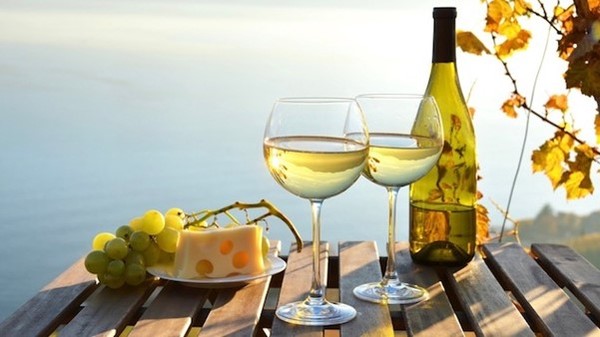
[아츠앤컬쳐] 그리스는 세계에서 가장 오래된 와인 생산국 중 하나로, 와인 제조의 기원은 약 6,500년 전까지 거슬러 올라가며 지중해를 통해 그리스 문명의 전파와 함께 와인 문화도 널리 퍼져나갔다. 실제로, 그리스는 BC 8~4세기에 지중해 전역에 수많은 식민지를 세웠다. 일례로, 남부 이탈리아에 포도 재배를 도입하고 그리스어로 ‘에노트리아’ 또는 ‘와인의 땅’이라고 불렀다. 그들은 또한 다른 이웃 나라들과 무역을 하며 그들의 와인 문화도 가져왔다.
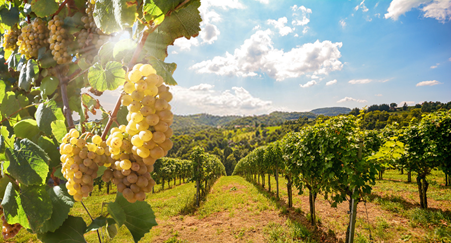
그리스인에 따르면, 와인은 디오니소스 신의 선물이며, 유명한 비극시인 유리피데스(B.C. 485~406)가 디오니소스의 희곡 ‘바케’에서 디오니소스 숭배를 불멸화하였음이 기억할 만하다. 플라톤과 아리스토텔레스 같은 권위 있는 철학자들도 그들의 작품에서 와인에 대해 쓴 바 있다. ‘심포지엄’ 즉, 종종 와인을 마시며 진행된 이 지적 토론은 고대 그리스인들 사이에서 발생한 것으로 플라톤의 작품에 생생하게 묘사되었으며 서구 철학과 문명의 시작을 촉발시킨 핵심이라 할 수 있다.
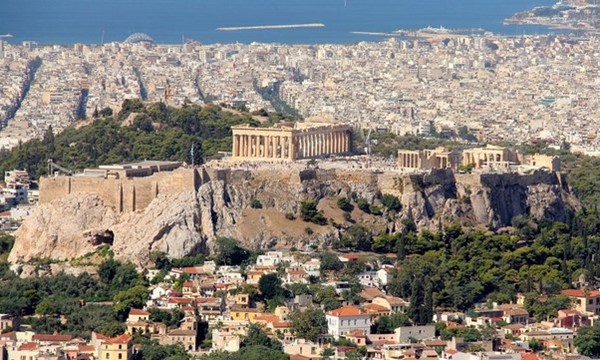
시인 헤시오드는 ‘오디세이’의 호머처럼 와인에 대해 말했고, 유명한 의사인 히포크라테스는 생각, 건강, 창의성에 미치는 와인의 미덕과 이로운 효과에 대해 언급하면서 동시에, 와인의 해로운 영향들을 강조하며 적당히 마시는 것이 중요하다고 충고했다.
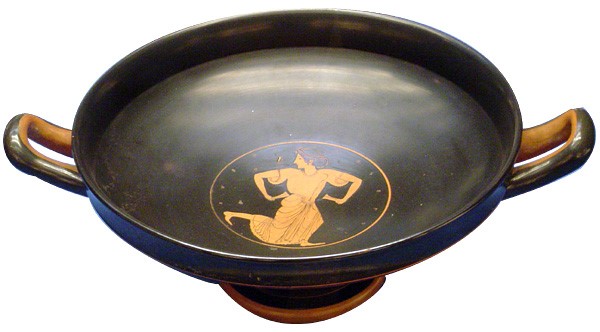
이에 대해, 신화적인 풍자와 패러디로 유명한 기원전 4세기의 그리스 시인 에우불루스는, 당시 포도주 그릇인 크라테르로 석 잔이 한 사람이 마셔야 할 적당한 양의 포도주라고 주장했다. 와인학자들에 따르면, 이 그리스의 현명한 생각을 반영하여 오늘날대략 석 잔씩 두 사람의 양이 들어 있는 750mm 와인 병이 나온 것이라고 한다.
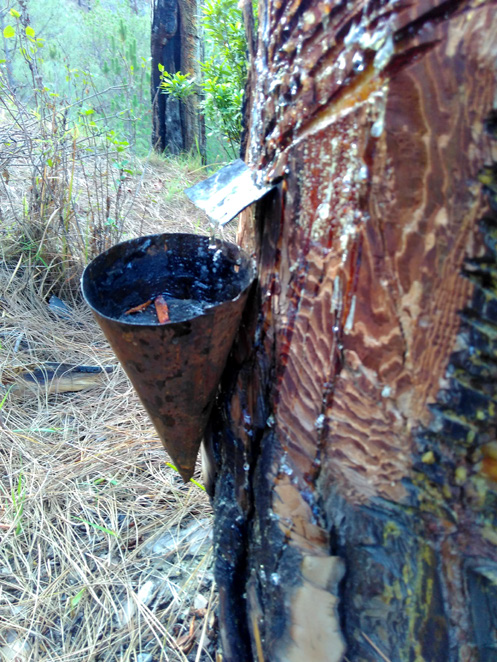
그리스인들은 스트레이트 와인을 마시지 않았다. 그리스에서는 물로 희석하거나 허브, 바닷물, 야생화, 송진 등이 섞인 와인을 마셨다. 가장 유명한 송진 향의 그리스 와인은 레치나이다. 레치나는 2천년 역사의 오랜 전통을 가진 화이트와인으로 그리스 전국에서 생산되며, 특히 아테네가 속한 아티카 지역이 주 생산지다. 와인은 송진의 두드러진 맛뿐만 아니라 하얀 사바티아노와 아시르티코 포도가 주는 백리향과 로즈마리향도 우아하게 지속된다.
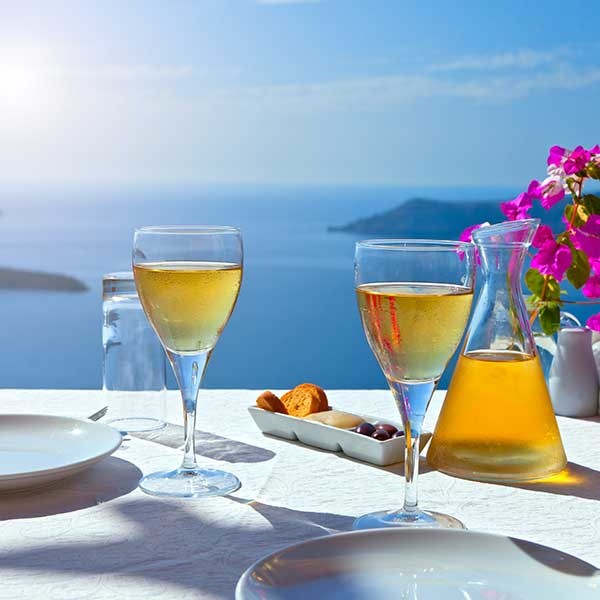
레치나 와인은 보통 메제스와 같은 전통적으로 맵고 고소한 전채요리나 문어구이 요리와 짝을 이루지만 또 다른 유명한 그리스 요리인 무사카, 돌마데스, 생선구이, 고기, 생선꼬치, 온갖 야채, 페타치즈 샐러드 등과도 잘 어울린다.
레치나 와인은 화이트와인 잔에 10°C 정도로 차갑게 마시는 것이 가장 좋다.
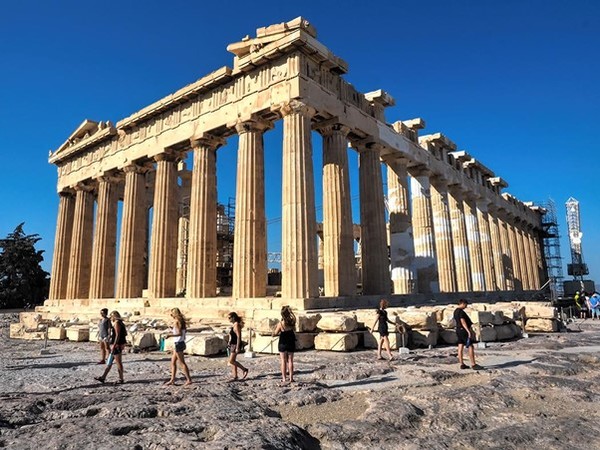
Retsina: the resin flavored Greek wine
Greece is one of the oldest wine-producing countries worldwide. The origins of winemaking in Greece have been dated to about 6.500 years ago and, with the spread of Greek civilization through the Mediterranean, their wine culture also spread.
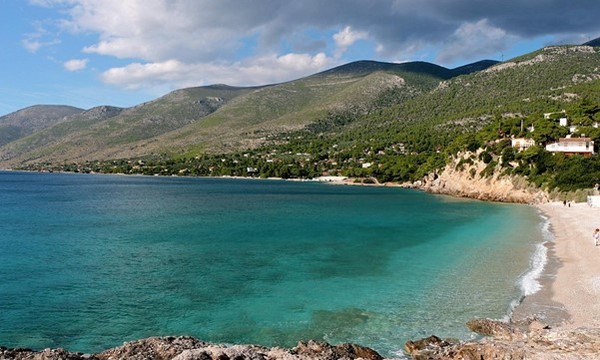
Indeed, the Greeks established numerous colonies throughout the Mediterranean (VIII~IV centuries BC), thus introducing, for example, the viticulture in southern Italy, which they called “Enotria”, or “Land of wine” in Greek. They also traded with other neighboring countries, bringing there their wine culture.
According to the Greeks, wine was a gift from the god Dionysus and within their culture is noteworthy to remember that the famous tragedian Euripides (485~406 BC) immortalized Dionysus’s cult in his play “The Bacchae”.
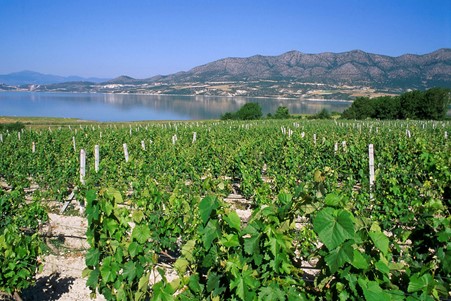
Authoritative philosophers such as Plato and Aristotle wrote about wine in their works. The “symposium”, intellectual discussion that arose among ancient Greeks and in which they often drunk wine, vividly described in Plato’s works, was the core from which sprang the beginning of Western philosophy and civilization.
The poet Hesiod spoked of wine, as did Homer in the Odyssey, while Hippocrates, the renowned physician, mentioned the virtues and the beneficial effects of wine on thought, health and creativity, but at the same time he highlighted the harmful effects of wine, advising to drink it in moderation.
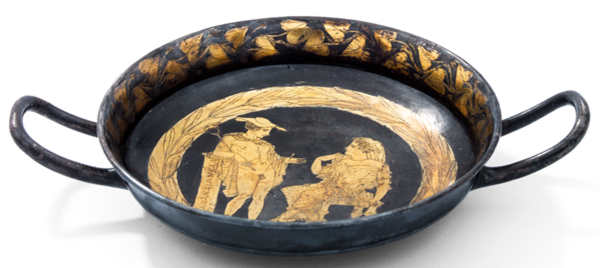
About this, Eubulus, a Greek poet of the IV century BC, known for his mythological burlesque and parodies, argued that three kraters, the bowl then used for wine, were the right quantity of wine a person should drink.
Reflecting on this Greek wise thought it would derive, according to wine scholars, the modern 750 milliliters wine bottle, which roughly contains three glasses each for two people.
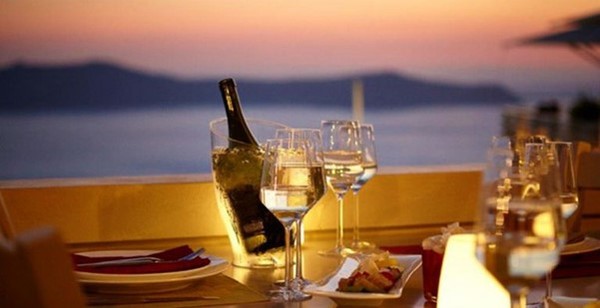
The Greeks did not drink straight wine. The wines drunk in Greece were diluted with water or mixed with herbs, seawater, wildflowers and pine resin.
The most famous pine-resin flavored Greek wine is Retsina. Retsina is a very ancient white wine, with a long tradition of two thousand years of history. In Greece this wine is produced throughout the country, but especially in Attica, the region where Athens is located.
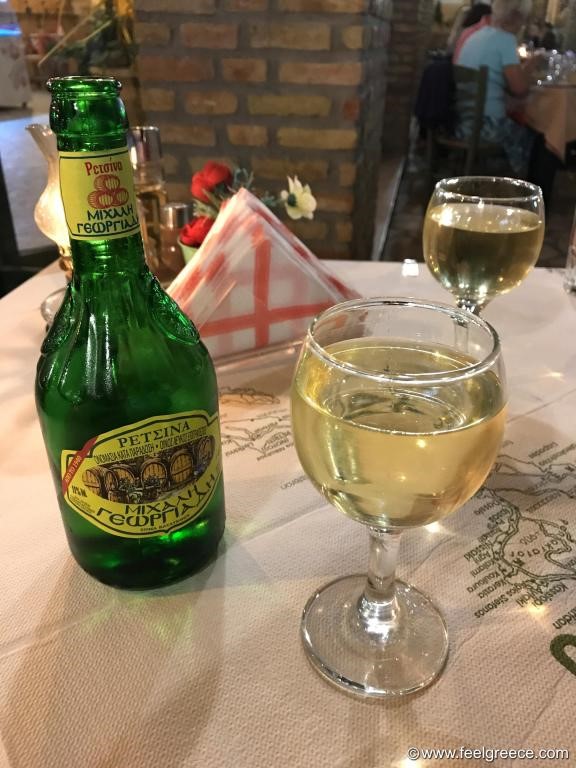
It is a wine with a persistent aroma and an elegant, but marked taste due to the pine resin, with hints of thyme and rosemary given by the white Savatiano and Assyrtiko grapes.
Retsina wine pairs usually with the Greek cuisine, like the “mezes”, traditional spicy and savory appetizers, with grilled octopus, but this wine also goes well with other famous Greek food, as moussaka, dolmades, grilled fish, meat and fish skewers, stuffed vegetables and feta cheese salad.
Retsina wine is best served chilled at around 10 degrees C in white wine glasses.
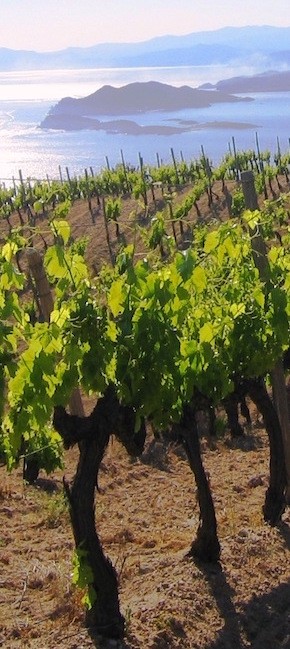
글 | 에밀리아노 펜니지 Emiliano Pennisi
Sogang University lecturer of Italian language, Wine scholar and expert, He attended sommellier courses in Italy

